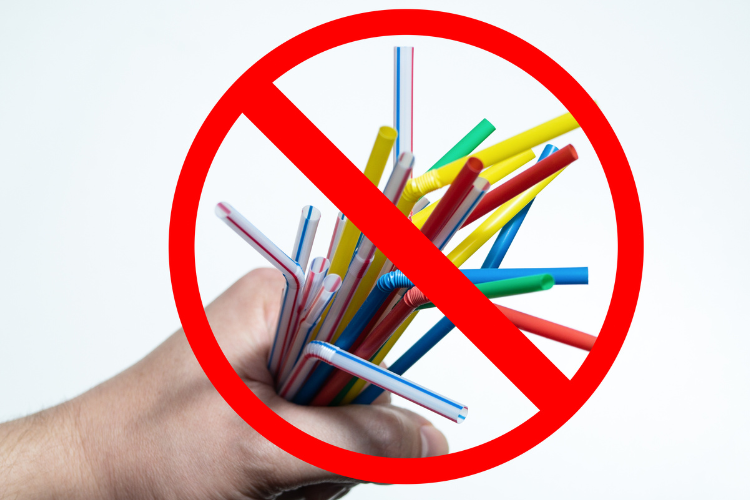The plastic straw ban has been a controversial topic in recent years, with advocates pushing for the ban in order to reduce plastic pollution and protect the environment. However, opponents argue that plastic straws are a small component of the larger issue of plastic waste and that banning them will not have a significant impact.
In this blog, we'll discuss both the pros and cons of the plastic straw ban to help you make informed decisions. We'll examine the environmental impact of plastic straws and alternative materials, as well as the economic and practical considerations of the ban. Whether you're a business owner, consumer, or environmental advocate, this blog will provide you with valuable insights on this hotly debated issue.
Pros of Banning Plastic Straws
Over the years, plastic pollution has emerged as a serious threat to our planet's health, with plastic straws being one of the most commonly found items in our oceans and waterways. These damaging realities led to the implementation of policies to restrict single-use plastics (including plastic bags, plastic bottles, plastic straws, etc.) in several cities and countries, including the US — Seattle being the first and largest city to ban plastic straws. From reducing plastic waste and conserving resources to protecting marine life, there are many compelling reasons why plastic straws should be banned.
Reduces Plastic Pollution
The plastic straw ban is an effective measure to reduce plastic pollution. Plastic straws are a common single-use plastic item that takes hundreds of years to decompose and can harm wildlife. By banning plastic straws, we can significantly reduce the amount of plastic waste that ends up in our oceans and landfills.
Protects Marine Life
Reducing plastic pollution is essential for protecting marine life. Marine animals often mistake plastic for food or become entangled in plastic debris, leading to injury or even death. By reducing our use of single-use plastic products, recycling, and properly disposing of plastic waste, we can decrease the amount of plastic that ends up in the ocean and help safeguard the health of marine ecosystems.
Raises Awareness
Raising awareness about the impact of plastic pollution is critical to encourage more people to take action. When more people are aware of the problem, they're more likely to take action and make smart choices to reduce plastic consumption, thus, increasing demand for sustainable and eco-friendly alternatives. This creates an opportunity for companies to develop and market sustainable products that are better for the environment.
Promotes Innovative and Sustainable Living
Despite the ongoing anti-plastic straw debate, many of us have shown support and are now looking for ways to reduce our carbon footprint, leading to a rise in sustainable living practices. The demand for eco-friendly alternatives has become so strong that it is spurring innovation across industries as diverse as fashion, food, and even technology.
The eco-innovation has encouraged brands to support the movement against plastic pollution. For example, many companies are now creating biodegradable packaging to replace their plastic counterparts. Other brands are looking into new ways of manufacturing products with less energy consumption.
Cons of Banning Plastic Straws
Despite the negative environmental impact straws have on our planet, there are still people who are against the plastic restriction and argue that there are valid and practical reasons why plastic straws should not be banned, such as:
Accessibility Issue For People With Disabilities
Many people with disabilities have difficulty drinking without straws due to physical limitations, such as limited mobility or weakened muscles. Alternatives such as paper or metal straws may not be suitable or practical for all individuals, which could prevent disabled people from being able to enjoy their favorite drinks outside of their homes.
While a plastic straw ban can potentially cause accessibility issues for people with disabilities, it's possible to find a solution that balances environmental concerns and accessibility needs. It's important for individuals, businesses, and governments to work together to find a sustainable and inclusive solution that works for everyone.
Could Harm Local Businesses
A plastic straw ban may have unintended consequences for local businesses such as restaurants, bars, and cafes. These businesses often rely on affordable single-use plastic products like straws to serve customers. The added cost and inconvenience of switching to more sustainable alternatives could lead to decreased profitability.
While it's understandable that businesses may be concerned about the financial impact of a plastic straw ban, it's important to recognize that the costs of continuing to use these products are much higher in terms of their impact on the environment and human health.
With these considerations in mind, several cities and states in the US have already banned plastic straws. Business owners and consumers are encouraged to shift towards reusable and biodegradable alternatives to avoid penalties.
The Final Verdict: Should Plastic Straws Be Banned?
The plastic straw ban may bring some unintended consequences, but it's crucial to recognize that it's the best decision for our planet and every living creature that call it home. While there may be a short period of adjustment and inconvenience for some consumers and financial impact on businesses, it's a small price to pay for a cleaner, healthier and more sustainable world.
While the transition to more sustainable alternatives may require some effort and investment, the benefits of reducing plastic waste and preserving our planet for future generations far outweigh any potential drawbacks.



Leave a comment: